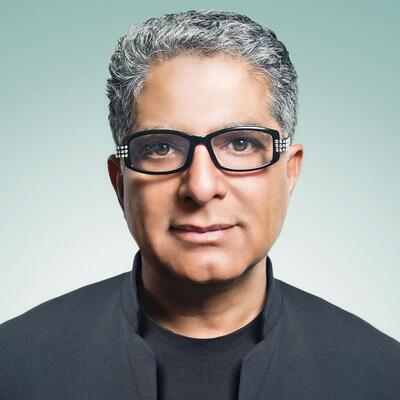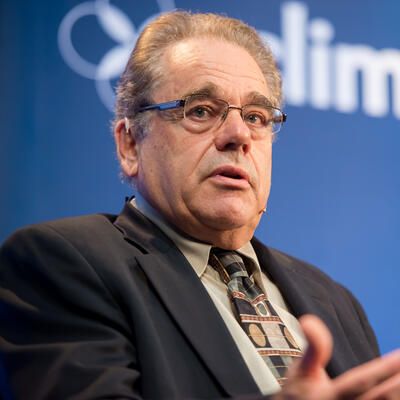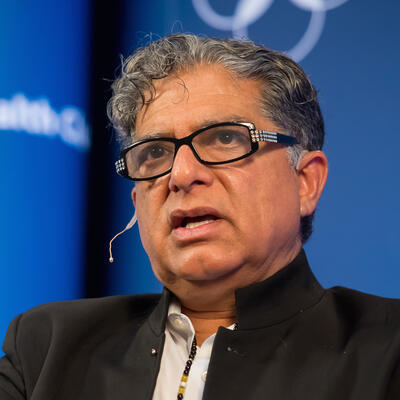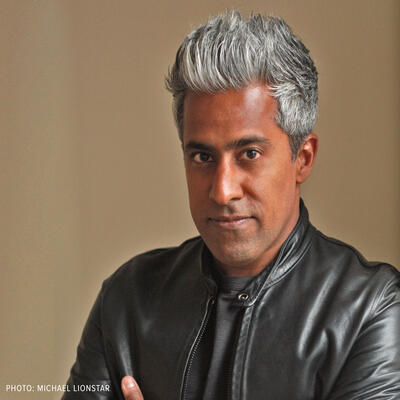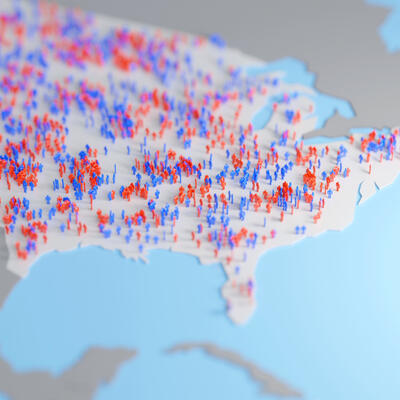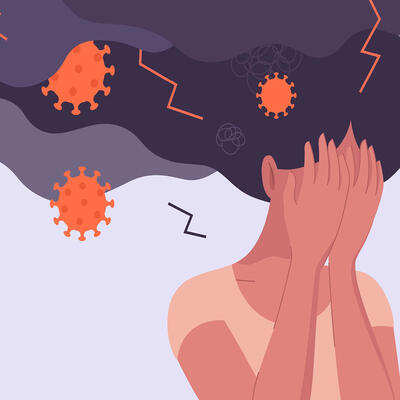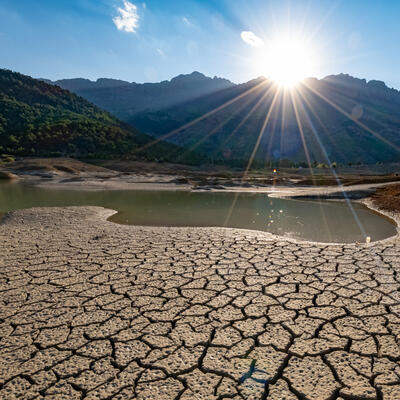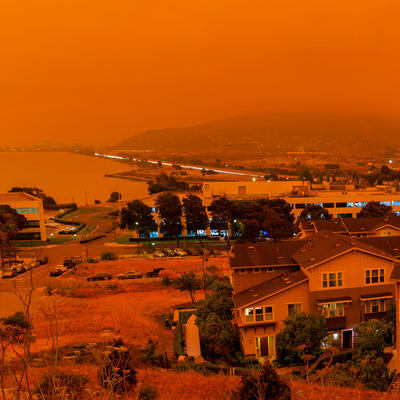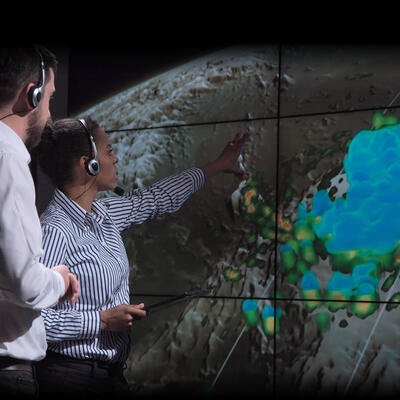Greg Dalton: I'm Greg Dalton. And today we're talking about energy and consciousness with author Deepak Chopra, and investor and entrepreneur, Rinaldo Brutoco. On average Americans spend less than ten minutes a year thinking about their electric bill. Most people spend more time agonizing over the price of gasoline, unless they drive an electric car, it costs the equivalent of about a dollar a gallon to run on electricity. Shifting the way a person powers their car and their life often involves thinking differently about energy, economics, and perhaps even happiness.
Over the next hour, we will talk about changing fuels and changing our minds. Along the way, we'll include questions from our live audience at the Commonwealth Club in San Francisco.
Deepak Chopra is an M.D. and physician, speaker and author of many books, including the Soul of Leadership. His latest book, co-authored with Rudolph Tanzi is Super Brain: Unleashing the Explosive Power of Your Mind to Maximize Health, Happiness, and Spiritual Well-Being.
Rinaldo Brutoco is an entrepreneur and founding president of the World Business Academy in Santa Barbara, California. He's president of the Chopra Foundation. Please welcome them to the Commonwealth Club today.
[Applause]
Greg Dalton: Rinaldo Brutoco, I want to start with you and ask you, when did you first realize that climate change was a serious challenge for you in your lifetime, and what could be done about it?
Rinaldo Brutoco: Well, 19 years ago we started the energy task force, the World Business Academy, looking at the question of the end of oil. That led through, and we were agnostic, we're business people, we're just looking for what comes next. And it became clear to us over a period of time that the entire planet would convert from a scarcity consciousness and energy to an abundant consciousness, and that would mean switching from fossil fuels to hydrogen, to the hydrogen economy.
And then we had this event, Deepak and I, down at Puerto Rico he was leading and I was helping with, where a guy named Al Gore showed up with a slide. It was just like a round slide carousel underneath his arm. Two secret service agents and nobody following him because he was still sort of in exile at that point, and he want to try out in Puerto Rico which is where this was with Deepak and I. He wanted to try out this new idea for this idea he's been calling an "inconvenient truth." So he does this slide show - a room five times bigger than this full of people - erupts in applause constantly and, of course, it gets to the famous hockey stick diagram and the entire crowd realized for the first time what was up. And that's what I crossed over and realized it could be done. We could change people's consciousness, their belief about the energy system.
Greg Dalton: Deepak Chopra, tell us about there's a something called the Barefoot University in India that's one of those stories of hope and change and transformation.
Deepak Chopra: So the Barefoot University in India was founded by an engineer, who after he finished college went to the village of his ancestors and he found extreme poverty there. And he decided to abandon his career which he was in visiting and worked to help the local community. And he found that grandmothers were the only people who would listen to him because they had nothing else to do other than play with the kids, so he trained them to become solar engineers. And now he has literally tens of thousands of grandmothers who are solar engineers, and they come from all over the world. The only qualification is you don't need to have an education and you need to be a grandmother. And they come from Libya and Afghanistan. In fact, I saw a picture he sent to me of an Afghani woman standing like this next to a Taliban and saying, "Don't you talk to me like that. I'm a solar engineer."
[Laughter]
And they are actually building solar communities, solar villages, solar homes, not only all over India, but Africa now and the Middle East, and so on. And these women have no education but they know how to solarize a facility. I interviewed him in New York and there were a lot of Wall Street people there who asked him if he needed help and he said, "No. If you come in, you'll be the problem. Money is not the solution. Money is not the solution, money is the problem." And so there you have an epiphany right there that this is what we're talking about is not theoretical, we're talking about something that's very practical. My epiphany, by the way, my moment was when my seven-year-old grandson asked me if he was going to live to my age or was he going to become a climate refugee. And I was totally amazed that a seven-year-old kid would be asking these question, but the kids at that age now are watching YouTube and they go online. They know what the conversation is about right now.
Greg Dalton: So what did you say to him?
Deepak Chopra: I apologized. I said, "We messed it up for you and now we're looking to you for the solution."
Greg Dalton: And how would you characterize the urgency or severity of the challenge before us right now with regard to change in the way we power the world economy?
Deepak Chopra: Well the Buddha said once or so, so it's quoted that when your house is burning, you don't analyze the causes of who did it and who's responsible, who lit the match, you put out the fire. And our planet is burning right now and this is an emergency. And it's really irrelevant to even talk about what the causes are, but it's obvious that this is the one thing that we address properly, it is the solution to peace, social justice, economic justice, a sustainable planet but also sustainable biology, and ultimately health and happiness.
Greg Dalton: And people recognize the challenge, what can they do to help bring about this change? Is it specific actions they take in their life or is it more about their thinking? And then we’ll get
Rinaldo Brutoco in here also.
Deepak Chopra: In my mind there are three things that should happen simultaneously. One is the way we do science. Right now, the way we do science is based on a model called "reductionism" which looks at the planet and the universe basically as in bits and pieces, which is a wrong model. It's not even real science. So science has to be looking at the universe as an undivided wholeness where our biology is the biology of the ecosystem. We are the ecosystem, here right here. So we are the recycling of the planet. Our body is the recycled. It is recycled dust. Our rivers are our circulation. The sun and the air and the trees are our breath and vital force so we have to start doing science in a way that makes sense that we include our biology is an expression of the ecosystem.
There's no such thing as you and the environment, you are the environment localized and recycled. The second shift has to be emotional and spiritual. I have to see that the universe is my extended body and I have to care for it as I care for my own body. I have to feel that emotionally. And the third is that it has to be practical and it has to generate wealth. So as Rinaldo said earlier, we have to move from scarcity consciousness, which is fossil fuels is scarcity consciousness. It is the reason why we have wars. It is the reason why there's extreme economic and social injustice and it is the reason we are poisoning our own bodies. So we need to feel that emotionally and therefore that shift.
And the third, as I said is, if you move from scarcity consciousness to abundance consciousness, this source of enormous wealth, if we understand that energy is infinite that the oceans, the rivers, the wind, the sun, and even space in the near future are the source of infinite energy, then we will actually look at the technologies that are there. The sun and the wind and micro grids and all the new technologies that are cropping up right now, including energy-saving devices, this needs to become immediately the next movement. Just as the space program gave birth, in a way, to Silicon Valley and now Southern California epigenetics and genetics understanding is giving birth to biotechnologies, and these companies are becoming extremely wealthy. If you truly understand that sustainability is the key to wealth consciousness, then we can create wealth from the infinite abundance of the universe that comes to us through energy.
Greg Dalton: We're going to ask you to use this. I think your mic is dropping out. So if you could use that so we'll be able to hear.
Greg Dalton: Yeah.
Greg Dalton: He's going to use this one and I'm going to use this one.
Greg Dalton: There we go. No, mine is --
Greg Dalton: Yours was dropping out. Okay. Whoa!
Rinaldo Brutoco, we're talking about abundance and scarcity, so how do we move from this scarcity to abundance? Some would say that clean energy is the biggest business opportunity ever in the history of the world?
Rinaldo Brutoco: No it is. The question in this and we have a chart we published. In fact I have to share it. Every time the human society has switched fuel systems and when it went from running water to wood, from wood to coal, coal to oil, and now recently to natural gas, and then on to hydrogen, every time it switches, you get this massive increase in global national wealth. GDP goes up dramatically. So our calculations are that the current GDP of the planet, which is $64 trillion on annual basis, will reach somewhere between $350 trillion to $650 trillion over a period of 10 to 15 years as you're implementing this system. So you hit the full benefit at the end of that 10 or 15 years if you went straight ahead and did it.
Now think about what that buys, think of all the problems that you don't have if you have an extra set of $64 trillion, you have an extra $350 trillion. Think of what that buys. All of a sudden, we don't have to make the kind of choices we are about infrastructure, education, rising status of women, developing in the nonindustrial world. All these issues start to go away when you switch from scarcity to abundance, I’ll just leave you with one other thought. In the last ten years, the cost of wind energy has dropped by over 75% and is still dropping. The cost of solar energy has dropped by over 90% and is still dropping, and that has unleashed enormous amounts of wealth. So here we are sitting on the edge of Silicon Valley, we should be the people wanting to own the development of these technologies, and to pursue them globally and it will create a world you cannot imagine.
Greg Dalton: But some of those technologies are still out of reach for many people, particularly in the developing world.
Deepak Chopra, in India, a lot of people can't afford an electric car. They can't afford any car. They can't afford solar power. So how is this going to be accessible if it's still more expensive than fossil fuels?
Deepak Chopra: In India, a lot of people don't have electricity but they have iPhones. Right now, a lot of people don't have sanitation, but they have television sets at the moment. It's what you put your attention on, really, that is going to create the change.
If people in India, the poor people in India, as has been shown through the grandmother's example, their resources are harnessed for this in Africa. In fact, India, Africa and China could power the world right now if you paid attention to it, and this is an opportunity, actually, to even enlist the help of our perceived enemies. I think the best way to get rid of your enemies to increase their capacity for economic growth, for health, for happiness, and for sustainability. This is the solution to war.
Greg Dalton: Does that mean you're going to go into the boardrooms of oil and coal companies into meditation and yoga, and try to -- how do you --
[Laughter]
[Applause]
Deepak Chopra: But Rinaldo can tell you more about this. He and I are very involved in a venture right now, a nonprofit called Just Capital. Because Rinaldo likes to go into specifics and I like to shoot the breeze, I'll let him tell you about Just Capital.
Greg Dalton: So Just Capital is that changing capitalism in some way?
Rinaldo Brutoco: Yeah. So the initial is JUST in caps and stand for Just Capital. This is an idea that Deepak came up with about two years ago. Because when he shoots the breeze, he shoots it with some fascinating ideas. And so some of us, we're going to kind of follow along, "Okay. How can we see that make it practical? How do we make that into something that people can actually do?" So he's chairman of the board of an organization called Just Capital based in New York.
Paul Tudor Jones, the head of Robin Hood Foundation, is the vice chairman. Arianna Huffington is on the board with us. Ray Chambers, Blake Mycoskie, the founder of TOMS Shoes, Paul Sigala [phonetic], Alan Fleischmann, there's a whole bunch of really interesting people who are on that board and more coming on every day and we have four objectives on that board. One is to demonstrate conclusion, but our first major study will be on 2016. That's how long we are working on this before we get it to pop. The first objective is to change the consciousness of executives in the financial institutions, so that they see they can make more money supporting sustainable values over the long haul. So change the metrics that Wall Street uses to evaluate commercial success.
Number two, shift the consciousness of the executives in those companies so they can see themselves getting a fatter paycheck by doing the right thing and being in a sustainable operation over a longer period of time. Third, shift the consciousness of the public sector so that political figures recognize that businesses are not only capable of doing the right thing, must be encouraged to do the right thing, and to work with those elements the business community there are. And the fourth one is to change the consciousness of the public at large so the public begins to put its attention on those companies that really are in unison or alignment with their deep values. Because when you do that, the activities of that company will excel. So we'll be publishing a ranking of the top 1,000 companies in the United States, public companies based on what the public of the United States believes are the most just values for corporate behavior.
Greg Dalton: Now socially conscious investing, social responsible investing has been around for a long time. It hasn't changed capitalism that much. It's kind of a niche thing in terms of incorporating social values into investing.
Deepak Chopra, is this time different?
Deepak Chopra: I think the only way you change consciousness right now is first having a conversation like the one we are having. Secondly, enlisting the help of media as much as you can, because media takes that connective, that conversation, and can help you reach critical mass. So the media that we are being exposed to right now, but media includes Internet, it includes other social networks, it includes Twitter, and Facebook, and every possible outlet that we can have to engage in this conversation because it's an emergency. The second thing you do is you change, we bring this conversation into education and that particularly in business school. The idea of Just Capital came to me because I was teaching a class. I teach a class at Kellogg Business School called the Soul of Leadership. But then I recently started teaching a class, Columbia Business School, which is called cause-driven marketing and just capitalism. And it's based on the idea that if you can create a capitalistic society that is looking at major issues around the world, and particularly sustainability and you create a business out of it, that you will be the business of the future.
So in my class, we have 50 students and at the end of the course, and Rinaldo has spoken at the class amongst other people, including Paul Tudor Jones, we divide the class into teams of five and so we have ten teams. And on the last day of the class, the teams make a presentation to venture capitalists, and they have to come up with a business plan that justifies this term cause-driven marketing and just capitalism. And actually, it's very interesting because our venture capitalists, who come as judges, have actually now started funding some of the students who are coming up with absolutely brilliant ideas on how to recycle toilet water and make it drinkable, on how to recycle through biophilia, even in apartment buildings create energy, et cetera, and these are kids basically who are doing this. So I think education is a very important part but media is even more important.
And then the third is, I think, entertainment. If we can get the big entertainers who come out in such a huge audience to really push these causes. Sustainability is the key to our biological sustainability, but it's also the key to everything else. And so I think we need to harness all these resources and otherwise nobody will know that what did you call it? It's called a social investing is such a big enterprise already. How many trillions of dollars?
Rinaldo Brutoco: Right now, in the U.S., it's a $6.5 trillion investment market every day. That's how much dollars is invested every day in mutual funds in this area, $16.8 trillion globally. It's not like a sideshow anymore. And by the way, it has the fastest compounded annual growth rate over the last ten years of any sector of investing.
Greg Dalton: If you're just joining us, our guest today at the Commonwealth Club are
Deepak Chopra, the author and physician; and
Rinaldo Brutoco is founding president of the World Business Academy. I'm Greg Dalton. Divest Invest is one branch of this. So
Rinaldo Brutoco, tell us about Divest Invest and how that's different than, say, some of the moral arguments about apartheid today?
Rinaldo Brutoco: Yeah. So Bill McKibben of 350.org has led this campaign for two years with some success now, saying that owning oil company stocks is the same as owning stocks in South Africa during the days of apartheid. That there's a moral obligation to divest from those stocks and invest in the stocks of the future which are also life-sustaining i.e. green technologies. We, in the Academy for the last six months, have been talking about that, not only in terms of the moral imperative, but we predicted on a national radio show almost six months ago now, that oil company stocks would go sideways or down from this point forward so that divesting is actually a good economic decision whether you believe in the moral argument, which I happen to. So I'm a big fan and have been for two years of Divest Invest, but I was delighted to be able to declare about five or six months ago, "Oil company stocks are at their all-time high, get out of them. Sell them. They're not going up. They're only going to go down and you'll see more evidence of that in months and years to come."
Greg Dalton: But China, India is ravenous for fossil fuels to bring people out of poverty, and there's tremendous coal demand is actually going up. It's going down in the United States, but it's going up globally. People want that lifestyle that we have and they're hungry for it. Rinaldo?
Rinaldo Brutoco: Well actually the coal thing is misunderstood. So, for example, Germany right now has a spike in coal consumption for the last year and a half because they're switching over to the massive North Sea windmills. When those connect - which they're going to be connected about three or four months - that will drop coal consumption in Germany dramatically. What they did is they chose to use coal for this one last spurt to get over to wind, so Germany is about -- it will be over 30% of its total energy comes from renewables within six months.
The second thing you should know is, in those countries, like China, where they are dependent on coal still, China's growth in renewables has outstripped every country on the planet in terms of solar and wind, so badly so that the projections we had as recently as five years ago of how much wind there would be in China were exceeded within the first nine months after the projection was made. So China is moving very, very fast on solar and they know why. By the way, there's a $350 billion price that's just been set up by the Politburo and just to clean the air in Beijing. So it become clear that they are killing their people and it’s a bad source of long-term investment. Watch how fast China moves. The reason we have cheap solar in America is because of China.
Deepak Chopra: "You don't get rid of an old model by attacking it," as Buckminster Fuller said. You can only get rid of an old model by creating a new model that makes the old model obsolete. And India's need right now is for energy, and again, Rinaldo can speak to the specifics of bringing energy to the point where it is created, where it is utilized. The micro grid - I don't know how many people know about micro grids - but I think you should speak to that.
Rinaldo Brutoco: Well there's a paper we'll pass out today here. If anyone wants about micro grids and how it can switch California as a starter and we believe India. Basically, in the 19th century, we came up with the idea of a long copper wire was the only way you can have a telephone. And as long as we were stuck with that idea, 23% of the people on the planet had telephones. Today, 90% of the people on the planet have phones. The reason is we gave up the idea you have to have a copper wire in between, and that's why a woman in the village in India can talk to somebody and know what price to put on her vegetables that day. The same thing is true with energy. When you give up the 19th century belief that you have to drag long wires down the state like California for a thousand miles, losing 50% of the total energy you create just in line loss, just moving around 50%. That is why we create micro grids. Create the energy where you want to use it, use it there, and California will be, I think, series of honeycomb micro grids.
Greg Dalton: That sounds like something that utilities are sure to try to stab in the heart.
[Laughter]
Rinaldo Brutoco: Well tomorrow Jigar Shah will be here. Jigar Shah was the individual who said that the utilities won't finance putting solar on the roof because the utility said it will never work. Jigar Shah said, "I'll become a multi-hundred million dollar winner by financing it. He will be here tomorrow. Creating Climate Wealth is his book. He's absolutely correct. And the private sector, Jigar and I have talked about, the private sector is more than willing to finance this entire thing. It will make more money than you can imagine.
Greg Dalton: So if this is so optimistic, why aren’t more people and more capital rushing in this direction?
Deepak Chopra: Because it's not part of our collective conversation. The shifts happen in collective consciousness when that consciousness reaches tipping point of critical mass. That's why we're having this conversation.
Greg Dalton: It's also something,
Deepak Chopra, you've written about, "Life experiences trigger genes." So how does the thoughts we have and the experiences we have change our genes and our minds at a physical level?
Deepak Chopra: Okay. Actually, there's an article this morning in the San Francisco Chronicle which if you go online, you can find on SF Gate, we at the Chopra Foundation along with several institutions, scientists from several institutions, including from San Francisco, Elizabeth Blackburn, who won the Nobel Prize in the year 2009 in biology and genetics and medicine for describing the enzyme called telomerase. So we have her as a collaborator. Rudy Tanzi from Harvard is the head of genetics and neurology there. We have scientists from Mount Sinai in New York, and also from Duke University, UCSD, and Scripps. This is the most ambitious study ever done, and in process at the moment.
There is already evidence that if you experience the following five things: good sleep every night, meditation as a tool for stress management, movement exercise, yoga breathing but any movement, a diet that doesn't contain fossil fuels. Because our diets are basically fossil fuel diets - I hope you know that - that anything that's processed, manufactured, comes in a can or has a label is actually has petroleum in it - agent orange. If it kills insecticides which have the same DNA as you, it's surely going to kill you. So a healthy diet and healthy emotions, such as love, compassion, joy, equanimity, these five things, influence the activity of your genes. So you have 23,000 genes, approximately. The human genome is about 23,000 genes, which is actually a few thousand less than the common potato. So it's not genes that make you, it's how those genes are activated.
Okay. So this is the new science called epigenetics, which means that our life experiences, including our thoughts, our emotions, our personal relationships, our social interactions, and the choices that we make every day, they change the behavior of our genes. In fact, there's a process, there's a chemical process that occurs. It's called methylation, and that this behavior of the genes can actually be transmitted to the next generation. Animals already we have this evidence that three generations down the line, your stresses, your thoughts, your feelings, your emotions, your relationships are going to influence, not only your children, but you grandchildren, and that includes the father's genes’ expressions.
So we're doing this collaborative study based on a previous study that we just finished, where he showed that in about four days of the practice of meditation, the enzyme telomerase which influences the length of telomeres, which are like little buttons at the end of your chromosomes by 30%. Just simply sitting, closing your eyes, and experiencing silence sets up a process of self-regulation. So this ambitious study which we are embarking on right now based on other previous studies that have shown in bits and pieces that consciousness influences biology. Okay. And today we are seeing that the biology is not just your little biology squeezed into the volume of a body or the span of a lifetime, but your biology is the biology of the ecosystem.
So I know I'm carrying on about this because I'm so passionate, but 90% of the DNA in your body is not human DNA, its microbial DNA. So although the body mass of the microbial DNA is only about 3%, the genetic information in your body, 90% of it is bacteria. They are on our skin, they are in our pores, in our hair follicles, in our GI tract, in our orifices, and you are literally a microbial colony with a few human cells hanging on to it. Now when you look at this microbial colony, you will find that it spans evolution. It goes back all to the first primitive organisms in our biological evolution. So you are the ecosystem of our planet since the beginning of life.
Now this is a major insight that we are an ecosystem of the planet right this moment in space and time, and since the beginning of life. And what we do to this ecosystem, we do to ourselves, even things like earthquakes and tectonic plates. Shifting is related to the state of hydration of the earth which is related to climate change, which is related to changing weather patterns, which is related to how we use fossil fuels, and our behaviors. We, in a way, all the natural disasters that are occurring, if you really go deep down into it, they can be linked to our behavior right now, which has estranged us from, in fact, the very word "environment" is a silly word. We have a personal body. We have a universal body and they're both equally ours.
[Applause]
Rinaldo Brutoco: Just quick. There are copies of the article he just referred to. It came out this morning in the Chronicle. Someone here has them. So if you want, ask Laura at the door. She will give you a copy. And I also want to put in a plug, as Deepak just said, the Chopra Foundation is extraordinarily committed to this research, along with all these other institutions he mentioned. If you'd like more information about it or how you could even participate in the study, it's called the SBTI study, contact the Chopra Foundation and we would be happy for you to learn more.
Deepak Chopra: SBTI stands for Self-Directed Biological Transformation Initiative.
Deepak Chopra: It's kind of today's science. We were talking about this 30 years ago intuitively but it's today's science.
Greg Dalton: If you're just joining us at the Commonwealth Club today, our guests are author and M.D.
Deepak Chopra and
Rinaldo Brutoco. And if you heard him, I believe you just said that if you're listening to the Commonwealth Club or coming to the Commonwealth Club, it's improving your consciousness and your DNA.
Deepak Chopra: All right. By the way, and not being facetious, at this moment, the genes in your neurons are being activated in a way that's healthy for you, just as a result of that insight. And the people are watching us somewhere else on the Internet or soon will be, their genes will be activated. So this makes sense. You can send somebody an emoticon on their email, you give them a dopamine hit.
[Laughter]
Deepak Chopra: All you do is send something to wireless technology or you can say something threatening to them and the cortisol goes up and their immune system shuts down. Why didn't we know this on the basis of common sense? We have to spend millions of dollars now to actually prove that this is biologically true that you are not your genes. You are. You are in charge of your genes, just like you're not in charge. You're not your brain, you're in charge of your brain.
Greg Dalton: You talked about the importance of sleep. You teach at Kellogg, you teach at Columbia, you have lots of books, do you sleep?
[Laughter]
[Laughter]
Greg Dalton: I got nothing for that.
[Laughter]
Greg Dalton: if you're just joining us, I'm Greg Dalton and we're talking with
Deepak Chopra and
Rinaldo Brutoco at Climate One at the Commonwealth Club. Let's talk about identity and consumers. We tend to identify ourselves as consumers. You've painted a very eloquent picture for who we are and what we are. Are we consumers? We think of ourselves as consumers because that's certainly the way a lot of us seek pleasure.
Deepak Chopra: We are luminous stardust beings with self-awareness. The stuff in your body was manufactured in the crucible of stars. In fact, the carbon in your fingernails and the oxygen that makes hemoglobin molecule could have also come from a different galaxy. So you are literally star stuff with consciousness, of course. I think the word "consumer" is such an ugly word. Okay. Just close your eyes and think consumption and consumer, and see the pictures it conjures up for you. Okay. And that's another word that is and words are powerful. They become memes in our collective consciousness. We should get rid of that word "consumer". Luminous stardust being with awareness. [Laughter] That's who I am anyway.
Greg Dalton: You're very successful. You're all over the place. When is the last time you rode in a private jet?
Deepak Chopra: I constantly get asked as a favor and I'm going to a conference and there are lots of wealthy people, and there are lots of entrepreneurs these days from Silicon Valley, and there are lots of Hollywood people who have private jets, so they constantly offer me rides. I fly - and this is not an endorsement - but I fly JetBlue or Southwest and if I can get a flight to a town like that to a place with these airlines because they’re economical and they cost less. I travel alone most of the time. So I make lame excuses when I'm offered a private plane ride. I don't want to offend people by saying, "Oh no, it's not good for the climate, et cetera." Although I do feel that it's not a good idea, but somehow I don't have the guts yet to say that to friends who have been kind of very nice to me. So I get out of it, but I don't fly private planes, no.
Greg Dalton: Do they sense any hypocrisy? Hollywood green people flying jets around pretending to be green.
Deepak Chopra: Well they take the jet and then went from the airport to take a Prius.
[Laughter]
Greg Dalton: Rinaldo Brutoco, what do you do on your own personal carbon footprint?
Rinaldo Brutoco: Oh gee. First of all, I'm delighted that I have been purchasing vehicles since the early 70s that were and my main criterion was how economically efficient are they with fuel? So I still own the first Prius I ever bought 12 years ago, which my daughter drives. I've got my own current Prius which I've had for about five years now. So to me, number one, is trying every way I can to reduce. In fact, I am about to sell my Prius to get a Volt because I want to support that technology, and then I want to get my hydrogen vehicle as soon as my gas stations with hydrogen is open in Santa Barbara. So I tend to look at that way.
Number two, like Deepak, I really try to be conscious of my carbon footprint and that's true in the way you dispose of things at home, how much do you recycle versus how much do you throw away, and I can go through all the different categories. I think that the issue, though, is how conscious are you about what you consume? Because I agree with Deepak, being a consumer is almost an insult. I'd like to think that I'm - maybe not as luminous as he is - but a luminous being of star stuff, and I'd like to be able to enjoy that.
[Laughter]
Greg Dalton: Deepak Chopra is showing his New York Metro card as a badge of honor here.
Deepak Chopra: And I cannot remember the last time I took a cab in New York City. I spend more than 50% of my time in New York City. When I'm in a place like San Francisco, if I have to take a vehicle, then I'll get the cheapest Uber or something like that. But otherwise, it's good for your health to walk, to take the subway, and remember movement is one of our key ways to stay sustainable. So we should get rid of the idea that we need private vehicles. I don't own one. My wife still does in La Jolla in California because we go back and forth. So she drives but I've given up my driver's license.
Rinaldo Brutoco: To this point just for all of you, I've taken Amtrak twice in the last week, a week and a half. Once to go see Deepak in Carlsbad instead of driving my car which is a Prius, and once to go to Los Angeles for a day for a meeting and back again. Now it takes a little longer - unless you're at rush hour - but think of what we save when we use Amtrak and think of how that promotes rail. We are the country that invented transcontinental railways and we're the worst railway system in the developed world. So that's an example. I'm a little afraid of the subways in New York because I don't know them like he does but I sure love the metro in Washington and in London I love it.
Greg Dalton: And just for the people in case you can't see --
Deepak Chopra: New York subways they're the safest place to be in.
Rinaldo Brutoco: I wasn't worried about the fear, it's the confusion, Deepak. It's the different colored lines that crisscross. You know where to get off and get on.
Greg Dalton: And for those who can't see,
Deepak Chopra is wearing a very snazzy set of shoes that are some of the most snazzy shoes I've seen up here on this stage. That probably help you in the New York subway.
Rinaldo Brutoco, some people think that the climate challenge can't be addressed without nuclear power, fossil-free fuel. What's your view?
Rinaldo Brutoco: Absolutely false. In fact, please take me up on this. We wrote a definitive white paper which we released about three months ago, two or three months ago, on why nuclear is not the answer to climate change. My first book on nuclear was published in 1997. It was published by Simon & Schuster as a college textbook. To this day, it still has not been refuted, no piece has ever been refuted. And we publish constantly in the Academy on nuclear. The book outside right there, Freedom from Mid-East Oil, has Chapter 5, which I personally named Nuclear: A Mistake in Search of a Mission. That's a Mistake in Search of a Mission. Think of that.
Okay. So my idea would be to tell you that please look into nuclear very, very deeply. The white paper is available from the World Business Academy. It's on our site. It would explain to you why it's economically crazy. It's environmentally insane. Every nuclear power plant in America off gases is a highly toxic, radioactive isotope called strontium 90. It's the only source of strontium 90 on the planet since we stopped doing above-ground nuclear testing. We now have more strontium 90 in the air in America than we did when Jack Kennedy personally stopped above-ground nuclear testing. So I can go on and on. I won't but please get a copy of that paper so you can educate your friends. That's what we're trying to do. Nuclear is not the answer on any level, and it's financially crazy as well.
Deepak Chopra: Did you not play a role in the shutting down of the nuclear plant?
Rinaldo Brutoco: Yeah. So we were the business group that led the shutdown of the San Onofre Power Plant recently.
Greg Dalton: Which is a pat plant in Southern California.
[Applause]
Rinaldo Brutoco: And our job as business people was to analyze the technology in like the engineering which is what we're really good at, as well as the economics. Because the stack of these documents are so high of bad numbers. So our friends there called Friends of the Earth - those are our affiliate in that case - they call on us to do that kind of heavy lifting, while they do the environmental stuff. We put in for a $1.5 billion rebate after the case was over, and the utility had offered $95 million to make up for some of the damage they did. They have now signed the document that they'll do $1.4 billion, and we're still dickering over the last hundred million right now as I speak. But the San Onofre will never reopen again, and the next one we have to close and the last one is Diablo Canyon. So please do go to our website.
Deepak Chopra: All you need is an earthquake, and you could have Fukushima right here.
Rinaldo Brutoco: Yeah. And the number one safety inspector at the Diablo Canyon, Michael Peck, PhD of the Nuclear Regulatory Commission, wrote a report June last year saying, "This plant is probably operating illegally beyond its permit because the fault lines that are here, we didn't know when we built it." And if you look at those fault lines, this plant is not capable of standing earthquake that could hit Diablo Canyon. We just had a 6.2 Richter scale earthquake a couple of hundred miles away. If that had been to the west, a little bit south, you wouldn't be having this conversation today because everything in Central California would be evacuated.
Greg Dalton: If you're just joining us, I'm Greg Dalton and we're talking about energy and consciousness today at Climate One at the Commonwealth Club with author and physician,
Deepak Chopra; and
Rinaldo Brutoco, president of the Chopra Foundation. I'm going to ask one question about forgiveness and then we're going to go to our audience questions. We talked about divesting from fossil fuels.
Deepak Chopra, do you think that fossil fuel executives are evil? Are they the black hats and can you forgive them for some of the --
Deepak Chopra: They are localized expressions of our collective consciousness, so we cannot judge them as evil. Because they do what we all are doing and they're just the manifestation, as I said, localized expression of our collective consciousness. So no, they are not evil. We can't judge them as people. We can't judge corporations also in the same way, as I said before, unless we have a shift in our consciousness collectively, we'll keep manifesting our collective pathology. What we call normal today is the psychosis of our collective consciousness and we take it for granted. It's not normal; its average.
Greg Dalton: Do you ever feel -- is there any guilt involved in that? People feel guilty for what we're doing we're part of?
Deepak Chopra: Yeah, but guilt is not the solution. I know religions have been built on institutions of guilt but guilt is never a solution. You have to go beyond guilt. You actually have to go beyond hope even because hope is a sign of despair. You have to find that place inside you, which is the creative center of yourself which is also the creative center of the cosmos. Because in the end, at the deepest level of our being, we are that singularity.
Greg Dalton: Are you hopeful that humanity will rise to the climate challenge?
Deepak Chopra: I'm not hopeful; I'm realistic. And realistic means that we have to be the change we want to see in the world otherwise, we're doomed.
Greg Dalton: Let's go to audience questions. Welcome to Climate One of the Commonwealth Club. Yes?
Female Participant: Thank you so much. So the idea or the practice that creating socially responsible mechanisms actually is happening a lot for people who are in that profession. There's people in this room who do that. There's a conference tomorrow that's renewable energy forum, 600 professionals are doing that. For those of us that are everyday people, what can I do as a citizen who doesn't want to call myself a consumer, but a citizen advocate, to learn more about how I can have clean and renewable energy in my hometown? I know that in Santa Barbara you guys have a lot of community members that are active to try to create renewable energy sources in that area. What can I do learn about that? I know you're working on the California Moonshot. What can I do to learn about that and what can I do today to try to have renewable energy in my community in California?
Rinaldo Brutoco: Yeah. First of all, so on our website that will be there by this afternoon as Clean Energy Moonshot paper I referred to earlier and as well as the Deepak's article will be there too, we've collected 1,250 people in Santa Barbara since February 1st of this year, just by having a meeting that started with 20 people in my living room. And now it's over 100 people a month, every month we have it. I would urge you, if you care, start it in your living room. See how it will show up every month to talk about what we can do. Every month we have a different project. Somebody comes forward. Recently, we were -- five and a half months ago, six months ago we were asked, "Would you also support Measure P?" which down our way, is the anti-fracking ordinance. We said, "Sure. Let's get involved with that." So a bunch of our people who came for one thing, ended up doing something else. So the short answer is, don't wait for somebody else to take the lead. Nothing is as powerful as one person deciding to make a difference and doing whatever they can. And I also would say, don't let the fact that you can't do everything, be the reason that you don't do something.
Greg Dalton: We're talking about energy and consciousness at the Commonwealth Club with
Deepak Chopra and
Rinaldo Brutoco. Let's have our next audience question.
Male Participant: My question revolves around a social economic basis of this discussion. Let's say global wealth does quintuple. What about the distribution of that global wealth? Look at this country in the last 20 years, we have a diminished wealth in almost all but a small percentage of the population. Historically, I think that started from tribes on into leaders, into kings, into royalty of the church, et cetera. What is going to keep the society we live in now from quintupling those guys at the top and still having a village in India, or maybe a village in America such as under the bridges we have now where people are living in tents, who will not have electricity and not have running water. They'll not have sewage. We have a social problem, as well as an energy problem. How would you address that?
Deepak Chopra: The word "sustainability" means social justice and economic justice. So we have to expand our definition of sustainability. I think this is actually an opportunity to empower the deprived with wealth that they create themselves for themselves. We give them the tools to do it as the way our friend with the Barefoot University is doing, and we need a movement around that in the work.
Rinaldo Brutoco: Yeah. I think it's probably the biggest thing wrong with the United States. And by the way, it's not as bad a problem most other industrial countries in the world. It's much worse here and it's gotten worse, as you know, every decade since World War II. It is causing people in this country to be less and less educated than the prior generation. It's been the source of so many ills and I think it's corrupted our politics. So apart from Citizens United, the fact that we are able to have so few people at the top 1%, benefit 80% of all the gains since the end of the recession, 80% went to the top 1%. That's wrong and we have to politically stop that. Thomas Jefferson once said that in a democracy, the people inevitably get better than they deserve. In other words, if you don't go out and make it happen in democracy, it's going to happen to you so I urge you to consider that. And I also think we need to push on media to start being news oriented instead of entertainment oriented, because people are very confused about what news is.
Greg Dalton: Next question. Welcome.
[Applause]
Male Participant: Good morning. The was a movie a few years ago called Who Killed the Electric Car? And somebody in there said something like, "There's $100 trillion worth of --
Greg Dalton: Can you stand a little bit closer to that mic?
Male Participant: Yes.
Greg Dalton: Thank you.
Male Participant: There's $100 trillion worth of oil remaining in the ground and the men who make money off that will not let anything get in their way. How does consciousness interrupt this? Thank you.
Deepak Chopra: We are that consciousness and I keep coming back to the same idea that I shared earlier. You don't fight it, you make it obsolete. Our collective consciousness is what creates legislation. Our collective consciousness is what creates change in behavior. There was a time when everybody was smoking in public spaces, but collective consciousness chose to change that. There was a time when you could drive and drink at the same time, but collective consciousness changed that. And that's the only solution. Otherwise, either you don't get rid of an ideology of a system by killing it because you can't kill an idea. The same way you don't get rid of a terrorist by killing the terrorist because it's like the ideology of terrorism is like Medusa's head. You kill one and two more come. You have to shift in collective consciousness because those people who are in charge are us in a different uniform.
Rinaldo Brutoco: There's an amazing shift of consciousness that's happening right this second. It's been going on for about a week or so now over the Ravens' Rice. Okay. We have decided as it populate. The NFL did not decide this. They have been burying these cases for years. We decided it's no longer okay to beat women. That's an amazing change of consciousness. Okay. Now it hasn't taken root yet. So you're having the -- you're going to have the ripples of this for quite some time, but the public has now made a decision. It's quite clear that the NFL has no choice. It is not acceptable to beat women. And if it's not acceptable in the NFL, it means it's not acceptable in Oakland or San Francisco or Santa Barbara. So this is a huge shift in consciousness that's just happening as we are sitting here today. Let's watch for those and let's celebrate them.
Rinaldo Brutoco: That's right. And Ray Anderson, who passed away not too long ago, is a good friend of ours in the Academy with Deepak and I, and he said, "When you climb mount sustainability, it's important to keep looking at the progress you're making." We got to look at the top of the mountain, for sure, but let's look at the progress we're making. If we can switch the consciousness on smoking, on the rights of women, on all of these other issues that we have begun to change, we can change our consciousness about everything. And when we do, guess what? The world changes around us.
Greg Dalton: Marriage equality is another one. Let's go to our next audience question.
Greg Dalton: Yeah.
Male Participant: Yes. This is a question for Mr. Brutoco. I understand from somebody who, unfortunately, is not with us any longer so I can't find out the information. But that in 1992, in the last six months of his term, George H.W. Bush Senior, Bush Senior and his group put together a pretty comprehensive energy plan for the United States, and it included a buy-in from some of the oil executives. Are you aware of that plan? And if you are, what is your opinion of it? If you're not aware of it, could you lead me to where I could find it? It was given to the Clinton Administration and was just buried and hasn't surfaced. So if you have a comment on that.
Rinaldo Brutoco: First of all, we can try and find it for you. There has been at least four separate administrations, starting with Carter, where major papers have been put together and where one or more oil company executives have signed on and said they agree with. I used to sit next to Kurt Wagner, and Kurt was the CEO of Shell when he and I were working in a common business group for some years. And he would admit privately to this as well. So there are any number of these that have happened from time to time with different administrations, say at least four in a row. I'm not sure of the specific paper you're referring to, but it wouldn't surprise me because anybody in energy would understand that.
What I would say though is, rather than looking backward for that paper, take a look at the paper we're distributing today on how you can create micro grids across the state of California. Forget trying to fix what's broken, and the fact that paper starts with the quote Deepak just gave from Bucky Fuller. So invent the system of the future. Don't try to repair something that we started with in the 19th century, it's not fixable. It literally isn't fixable. So that's what I would urge you to look at and we'll be happy to talk to you in the Academy. And if you have an ongoing interest, by all means, consider joining our energy task force. That's what we do every day.
Greg Dalton: We're talking about energy and consciousness at the Commonwealth Club. Let's have our next audience question.
Male Participant: Alright, well, thank you both for your insight and light on these matters. It's kind of my life mission to work in entertainment and media, and I heard you said earlier in the talk that as consciousness shifts, the entertainment and media and what we see will shift. I was wondering kind of two-fold here if you think that as consciousness shifts, there is definitely going to be a market in entertainment and media for more cause-related issues, bringing things like this to awareness of people. And then on top of that the development of ionospheric communications if that will help connect the world more, so that way we can have more conversations like this.
Deepak Chopra: As you look at marketing, it shifted from retail marketing to what we call Internet marketing so it's still happening, of course, so you see the emergence of Amazon. But Amazon is a kind of marketing where you go and you decide what you want to buy. Just like you go to Walmart or whatever, and you decide what you want to buy. That kind of marketing then shifted to what we call brand marketing, where the celebrities, people go and say, "So what's Magic Johnson wearing? These shoes? So I want to buy that too." So the brand marketing came.
Right now, it's moving to what is called story marketing. Story marketing means that there's this product of this store or this service actually have a story that moves me emotionally. So if I have two brands of coffee that I'm going to buy and this one is coming from Guatemala, but it's also empowering a village out there, and they cost the same, or even if this one is a little more expensive, people will tend to buy this. So this is where entertainment and media comes in to speak very eloquently with stories. And good stories, of course, are mythical stories. There are good guys and there are bad guys. They have the heroes call, they have challenges, they have breakdowns, but in the end, the story always is you reach a happy ending and you come back to tell everybody about it. So that's where entertainment can help us.
Greg Dalton: Next question. Welcome.
Male Participant: Thank you for being here. We really appreciate it. I look for the top 50 green cities in the United States. Sacramento is the number one green city right now and the main reason is, they're using biodigesters for their food down there. Food waste is a huge problem in this country. They're taking food waste and they're turning it into fuel for vehicles. And I was wondering what your thoughts were as far as a trend in the country, North America, for biodigesters.
Rinaldo Brutoco: So in the book out there, Freedom from Mid-East Oil, we talk about this. That came out about eight and a half years ago, and one of the trends we thought which was huge was biodigesters. Simply because it takes -- it's a very low technology. It just takes sunshine and a black thermos bottle, if you will metaphorically, and a few enzymes help accelerate the process. But in three weeks, you can take almost any kind of organic material and turn it into a fairly high-graded methane. And if you don't do that, by the way, that same methane degrades over time and becomes part of global warming, so we are actually recycling something that needs to get put away.
So that global digesting is huge. There are two micro grids that are successful in the world right now. One is in the UC San Diego the very place that's doing the research he's talking about. It runs off a micro grid, which saves $8 million a year by disconnecting from the grid. Think about that savings in one little location. The other one is in Germany and biodigesting is a big part of it because in that cold climate, they can't get enough photovoltaic so biodigestion is clearly a big part of this. And if you want talk about it later, afterwards, I'd love to share with you how we could also solve the groundwater problem in the Midwest from all the pig farms and whatnot that are polluting the groundwater because there's a way that it can solve that too.
Greg Dalton: Kind of emulating the recycling that
Deepak Chopra talked about earlier. It's like recycling things but being more conscious about it. Let's have our next question. Welcome to Climate One at the Commonwealth Club.
Male Participant: Hi. Thank you. It's an honor and joy to be here. I have a question. I totally get the whole discussion about self-transformation leading to universal abundance. I think the opportunity is bridging that gap. A lot of people are tangible -- like to see things in a tangible format and a vision, et cetera. I just want to get some perspective on how one can make that happen and hear your thoughts on how one can bridge that gap in a tactical tangible manner.
Deepak Chopra: I started out by saying an expanded science and emotional and spiritual shift, and then practical technologies.
If they are not practical, and they do not generate wealth and sustainability in that means economic and social justice, then they are doomed. So you need all three things and we need a new science that looks at reality as it is. We need an emotional connection and a spiritual connection to ourselves and the biosphere. But then we need very practical and economically viable solutions, and we need incentives through banking, and through legislation, and through tax laws, which all again depends on collective consciousness.
Greg Dalton: Rinaldo Brutoco, some specific steps people can take to make this happen.
Rinaldo Brutoco: I think the first thing is recognize that you are your only best advocate. If you check into a hospital and you think they're going to take care of the answers, watch out. That's a place where they kill people. So what everybody learns in a hospital is be your own advocate, your own medical advocate. I think it's even truer in the day-to-day world that we live in. Deepak and I have worked for 20 years now in the Academy together on a variety of issues. Nothing has raised to the level of urgency the way he and I feel about climate change. So we don't have 100 years to get this right. We don't even have 25 years to get this right. We got to turn this around immediately. And so I would say, anybody who doesn't recognize the sense of urgency we're trying to create this morning or we're calling for, please do some more study, do some more thinking, do some more inquiry. It starts with you and find out why this is probably the most vital thing you can do. Because the truth is, no seven-year-old grandson of his has a chance right now.
Deepak Chopra: Tomorrow Jigar Shah is coming here. He wrote the book Solar Wealth, and basically he grew up in India in the formative years of his childhood and then he grew up here. And he says he usually will have the Gāyatrī Mantra every day in his family. I don’t know how many people know about the Gāyatrī Mantra but it's a mantra invoking the energy of the sun, and he grew up thinking, even as a child, "If the sun can apply all this energy for hundreds of millions of years to come, why aren't we harnessing it?"
And, of course, the answer was, there aren't any economic incentives and the special interest groups and all the usual things. But then he decided to create financial instruments where you could own your own solar energy. You could save on your bills and you could get wealthy. And so here he is. He's not even or I think he just turned 40. He is a young billionaire as far as I know, and he's making a difference in the world right now, for talking about solar wealth. So it takes creativity, it takes action, but it also takes love. Love without action is meaningless and action without love is irrelevant. But when you have all this creativity and love and action at the same time, you create miracles as he did.
Greg Dalton: We have to end it there. Our thanks to
Deepak Chopra, a mind and body physician, and author of the Soul of Leadership; and
Rinaldo Brutoco, president of the Chopra Foundation. I'm Greg Dalton. I'd like to thank everyone in this room and listening to this on podcast and radio for coming and listening today, and improving and fortifying your DNA in your brain and joining us on this conversation. Thanks, everyone.
[Applause]
[END]
